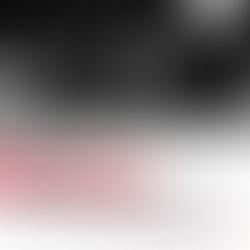🎨 AI's Ghibli-Style Art Sparks Legal and Ethical Debates! 🤖🖌️
- MediaFx

- Apr 2, 2025
- 2 min read
TL;DR: AI tools like ChatGPT are now creating images in the iconic Studio Ghibli style, leading to debates about copyright laws and ethical concerns. While some see it as a tribute, others view it as unauthorized use of artists' work. This highlights the urgent need for clear regulations in the AI art world.

The Buzz Around AI-Generated Ghibli Art
Lately, social media's been flooded with AI-crafted images mimicking the enchanting style of Studio Ghibli. Thanks to ChatGPT's image-generation feature, anyone can transform their photos into Ghibli-esque masterpieces. This trend has taken the internet by storm, with celebs and netizens alike jumping on the bandwagon.
Miyazaki's Take on AI in Art
Hayao Miyazaki, the genius behind Studio Ghibli, isn't exactly thrilled about this tech twist. Back in 2016, when shown an AI-generated animation, he remarked, "I am utterly disgusted. I would never wish to incorporate this technology into my work at all." His sentiments have resurfaced amidst the current AI art trend, emphasizing concerns about the soul and emotion in art.
Legal Loopholes and Copyright Conundrums
The legal landscape here is as murky as Mononoke's forest. While specific artworks are protected by copyright, an art style isn't. This means AI can mimic Ghibli's vibe without technically breaking laws. However, the fact that AI models are trained on existing artworks without explicit permission raises eyebrows and questions about fair use.
The Ethical Dilemma
Beyond legality, there's the ethical side. Artists pour their heart and soul into creating unique styles. When AI replicates this without acknowledgment or consent, it feels like creative theft. As one artist pointed out, this trend showcases how companies might disregard the hard work and livelihoods of artists.
Why We Need Better Regulations
This Ghibli-AI saga underscores the pressing need for clear-cut regulations in the AI art realm. As AI continues to evolve, it's crucial to balance technological advancements with respect for original creators. Transparent policies can ensure that artists' rights aren't overshadowed by the rapid pace of tech innovations.
MediaFx's Take
At MediaFx, we stand with creators. Art is more than just visuals; it's an expression of human experience and emotion. While technology offers exciting possibilities, it shouldn't come at the expense of the artists who inspire it. It's high time for policies that protect creative labor in this digital age.
What Do You Think?
Is AI's replication of art styles a form of flattery or a violation of artistic rights? Drop your thoughts in the comments below! Let's get this convo rolling.👇













































